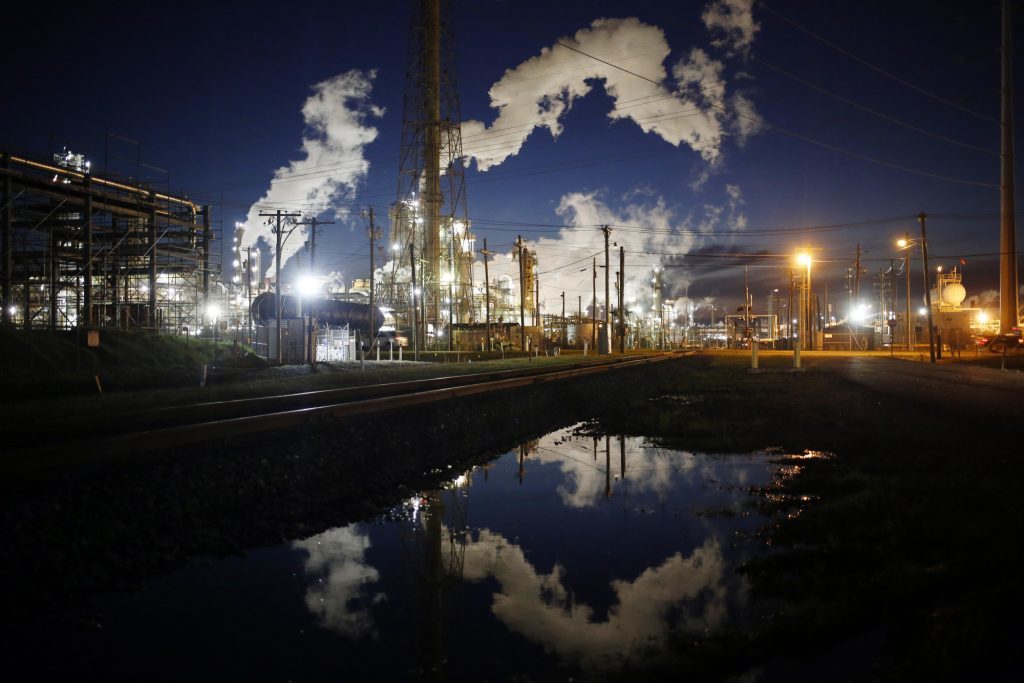
Gasoline prices fell for the first time in almost two weeks, after rising 25 percent last month, as traders assessed the impact of Tropical Storm Harvey.
Motor fuel prices slipped 2.3 percent in New York on Friday amid signs some U.S. Gulf refineries are preparing to restart operations. Crude declined 0.2 percent. About 4.4 million barrels a day of U.S. refining capacity remains shuttered. The government plans to supply 1 million barrels of crude from the Strategic Petroleum Reserve to a Gulf Coast plant, the first emergency release in five years.
Hurricane Harvey cut U.S. refining capacity to the lowest level since 2008 after its initial strike on the Texas coast late last week. It returned as a storm to hit Louisiana on Wednesday, forcing the shutdown of the biggest U.S. refinery, owned by Motiva Enterprises LLC in Port Arthur, Texas. At the same time, some refiners including Royal Dutch Shell Plc and Marathon Petroleum Corp. are preparing to restart plants.
“Hopes that the weekend will bring some good news on port and refinery openings is probably doing its part to reduce support” for gasoline, said Ole Hansen, head of commodity strategy at Saxo Bank A/S. Still, “the overhang of crude stocks, especially the build up at Cushing will take some time to clear.”
Gasoline for October delivery fell to $1.7378 a gallon on the New York Mercantile Exchange at 1:41 p.m. in London. September futures expired Thursday after rising for an eighth session. Front-month diesel futures in the New York Mercantile Exchange have gained 5.9 percent this week, rising to the highest in more than two years on Thursday.
West Texas Intermediate for October delivery lost 15 cents to $47.08 a barrel on the New York Mercantile Exchange, down 1.7 percent for the week. Brent for November settlement slid 21 cents, or 0.4 percent, to $52.65 on the London-based ICE Futures Europe exchange. The global benchmark traded at a premium of $4.78 to November WTI.
The Phillips 66 refinery in Lake Charles, Louisiana, will receive crude from the strategic reserve as part of an agreement requiring the company to replace the oil once supplies are flowing again. As many as 11 ports were shut as Harvey hit the Texas coast, leaving 28 tankers laden with more than 18 million barrels of overseas oil drifting offshore as of Wednesday night.